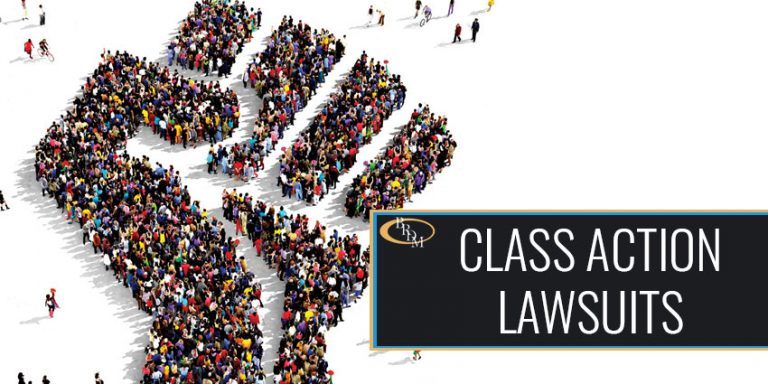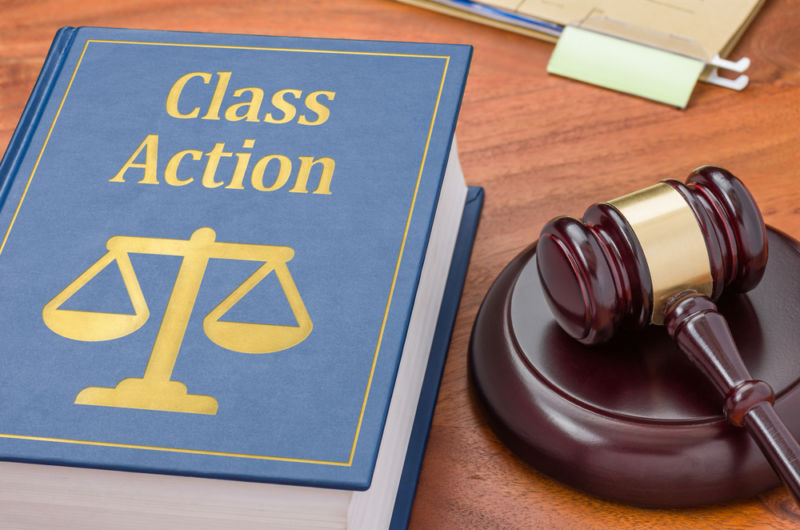Demystifying Course Action Lawsuits: A Closer Appearance at Lawful Proceedings
Class activity suits can be complex and daunting, usually shrouded in a veil of secret for those strange with the legal proceedings entailed. From comprehending the requirements for course activity qualification to the duty of course reps, and from the process of class certification to the resolution of these suits, we will decipher the ins and outs and lost light on the internal operations of this lawful device.
Comprehending Class Action Suits
Recognizing Class Activity Lawsuits needs an extensive evaluation of the legal proceedings associated with collective litigation. Course activity legal actions are a kind of lawful action where a group of individuals with comparable cases or complaints collaborate to initiate a lawsuit versus an usual offender. This type of litigation allows people with minimal sources to collectively look for justice, as it incorporates the stamina of several individual cases right into a single legal activity.
The procedure begins with the recognition of a lead complainant or class representative that files the initial issue in support of the entire course. The court after that figures out whether the situation meets the needs for class certification, which consist of commonality, numerosity, typicality, and competence of depiction. If certified, the court alerts prospective course members, providing a chance to opt-out if they wish to seek their claims independently.
When the class is accredited, the litigation continues through numerous stages, consisting of discovery, activity practice, and, if essential, trial. The end result of the suit can cause a judgment or a settlement, which is binding on all class participants unless they choose to opt-out. Course action claims can encompass a wide variety of legal concerns, such as consumer security, safety and securities fraudulence, employment discrimination, and environmental injury.
Understanding the subtleties of course action claims is essential for both accuseds and complainants involved in collective lawsuits. It calls for a complete understanding of the lawful requirements for accreditation, the civil liberties and obligations of class participants, and the possible benefits and dangers related to seeking or defending versus course action claims.
Identifying Class Action Eligibility
To establish whether a lawsuit qualifies as a class action claim, details criteria need to be fulfilled. These requirements are created to make certain that the case can properly represent the rate of interests of a big team of individuals that have actually endured comparable damage or have been influenced by the same problem. The crucial factor in recognizing class activity eligibility is the visibility of a typical inquiry or issue that influences all possible course members.
To start with, a class action suit needs numerosity, which implies there should be a significant number of potential course participants included. This guarantees that a class action is a reliable means to solve the insurance claims of a big group of people, instead of having everyone file a specific claim.
Secondly, there should be commonality amongst the insurance claims of the potential course participants. This implies that there must be an usual concern of law or reality that is main to the case. A class activity may not be appropriate. if each possible class participant's insurance claim is unconnected and distinct to the others.

The Duty of Class Rep
Course representatives play a critical role in class activity lawsuits by representing the passions of the whole class. These people are selected from within the class to serve as the general public face of the lawsuit and are in charge of choosing on part of all class participants. The duty of course representatives includes different duties and duties throughout the legal procedures.
Among the key responsibilities of class representatives is to offer info and aid to their fellow course members. They function as a point of get in touch with and interaction in between the course members and the attorneys representing them. This consists of keeping the class members notified around crucial updates, answering their inquiries, and dealing with any kind of concerns they may have.
Class representatives additionally have the obligation to actively take part in the lawsuits procedure (BioVie class action lawsuit). This involves functioning carefully with the attorneys to develop lawful methods, gathering evidence, and giving statement if required. They must be proactively associated with all aspects of the situation to guarantee that the most effective passions of the whole class are stood for
Moreover, class reps are accountable for approving negotiations or other resolutions gotten to in the suit. They have to the original source very carefully evaluate the regards to the settlement and make a choice that is in the very best rate of interest of the whole class. This decision-making procedure needs mindful consideration and appointment with the class participants.
The Process of Course Certification
The procedure of certifying a course in a course action legal action includes a comprehensive analysis of particular standards to determine if the situation meets the needed requirements for class qualification. Class accreditation is a crucial action in the lawsuits process as it identifies whether a legal action can proceed as a class activity, permitting a large group of people with comparable claims to be represented collectively by one or a couple of people.
To obtain class accreditation, the complainant has to demonstrate that the suggested class satisfies certain prerequisites. These prerequisites commonly include numerosity, commonality, typicality, and adequacy of representation. Numerosity needs that the course is so huge that joinder of all participants is impractical. Commonality necessitates that there are concerns of legislation or truth typical to the course participants. Typicality calls for that the cases or defenses of the course agents are regular of those of the course. Competence of depiction makes certain that the course representatives will fairly and properly shield the passions of the course.
The court will certainly inspect these requirements and the plaintiff's proof to establish if the suggested class meets the essential needs. The court may also take into consideration various other elements, such as whether a course activity is the superior approach to solve the conflict and whether the course is adequately cohesive.

Once the court gives course accreditation, the suit can proceed as a course activity, allowing the plaintiffs to jointly seek relief and possibly obtain a judgment or settlement that benefits the whole class.
Solving Class Activity Suits
Once course accreditation has been granted, the following action in resolving a course action legal action is to browse the process of lawsuits or settlement arrangements. Litigation refers to the lawful Read More Here proceedings in court, where the complainant's attorney offers evidence and arguments to sustain their claims, and the offender's attorney counters with their very own evidence and arguments. This process can entail different phases, such as pretrial movements, discovery, and trial. Throughout pretrial movements, both events may submit motions to disregard the case or slim down the issues in opinion. Exploration enables each side to collect evidence and details from the other celebration via techniques such as record interrogatories, demands, and depositions. If the instance proceeds to test, both events provide their instance before a judge or jury, that will certainly then choose the result.
On the other hand, negotiation negotiations include discussions between the events to reach an equally appropriate resolution without going to trial. Settlement uses may be made at any phase of the lawsuits process, and if both parties concur, a settlement agreement is gotten to.
Final Thought
To conclude, class activity suits play an important role in supplying justice and compensation to huge groups of individuals that have been damaged by the exact same entity. By accrediting a course and selecting course agents, the legal procedure becomes extra obtainable and efficient for the complainants. Solving these lawsuits can be a facility and lengthy procedure, but it is necessary in holding corporations liable for their actions and making sure reasonable results for visit here all influenced parties.
From recognizing the criteria for class activity eligibility to the function of course representatives, and from the process of course certification to the resolution of these claims, we will certainly unravel the ins and outs and lost light on the inner functions of this lawful device. The essential aspect in recognizing class action qualification is the visibility of a common concern or problem that influences all potential class members.
If each prospective course participant's claim is distinct and unassociated to the others, a class action may not be proper.
Course reps play an essential function in class activity claims by standing for the passions of the whole course.Once class certification has been given, the next step in fixing a course activity claim is to browse the procedure of lawsuits or settlement negotiations.